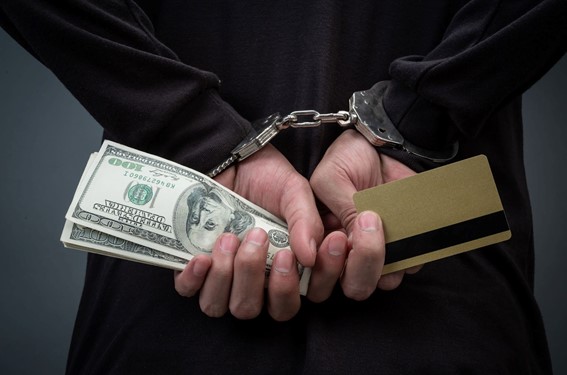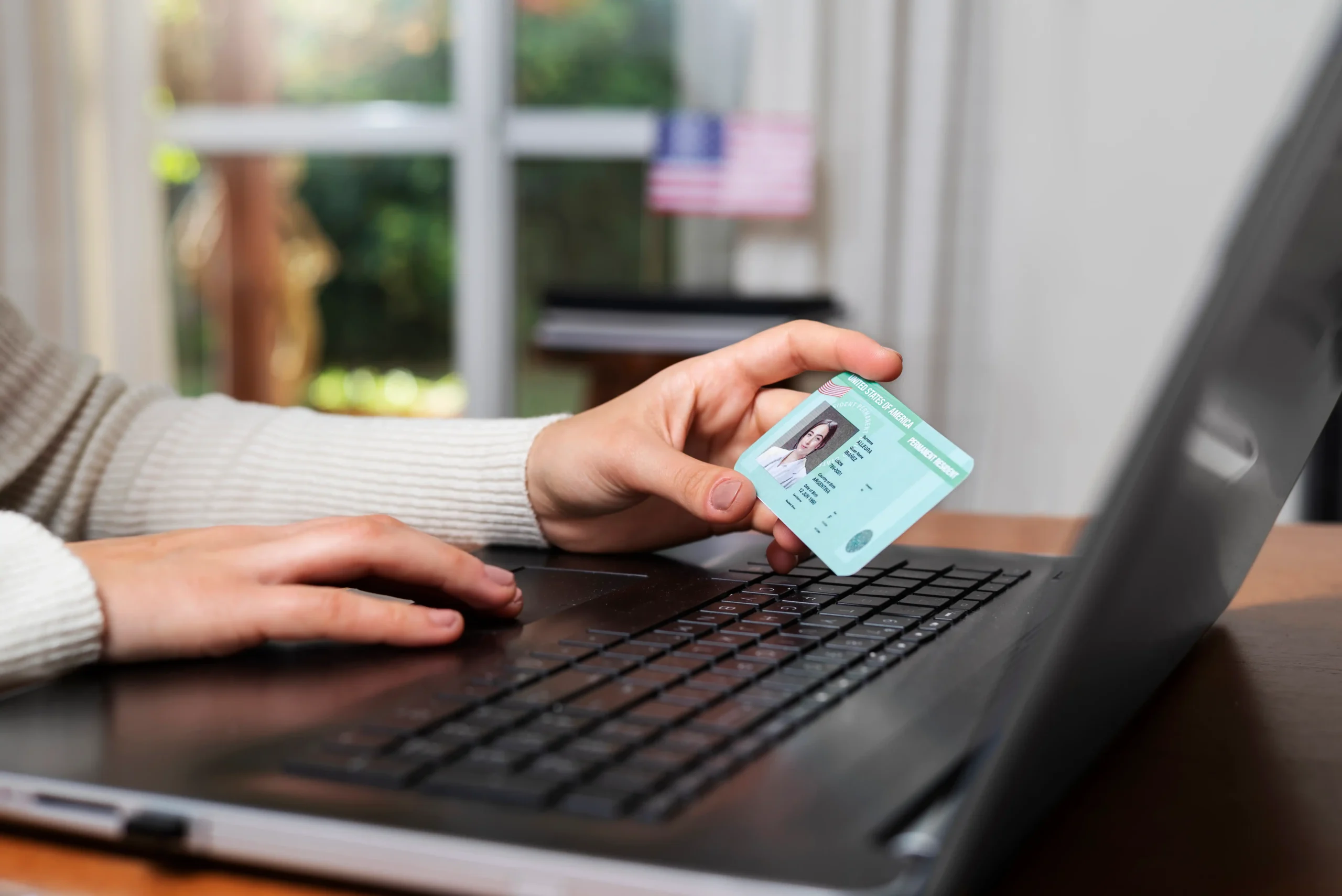Is fraud a felony? This question often arises as fraud—a deceptive act committed to gain an unlawful advantage—carries different legal classifications and multiple consequences. Learning about the distinction between misdemeanor and felony fraud is very important for anyone potentially affected by such accusations.
Misdemeanor fraud usually involves less severe penalties, while felony fraud can result in long-term prison time and serious personal repercussions. In this post, we will talk about when fraud is considered a serious crime and explore the repercussions that follow a felony fraud conviction. But first, let’s explain how fraud works, typically involving deception or concealment.
Need support after a scam? Join our community today.
What is Fraud?
Fraud is a deliberate act of deception that is designed to obtain an unfair or unlawful gain, or to defraud a victim of a legal right, according to the Fraud Act 2006. Key elements of fraud include dishonesty and intent to gain or cause loss.
How is Fraud Classified: Misdemeanor or Felony?
Fraud can be prosecuted as either a misdemeanor or a felony, with the classification largely depending on the severity and impact of the offense. Factors that typically influence this classification include:
- The amount of money involved.
- The vulnerability of the victim (such as the elderly or uninformed).
- The defendant’s criminal history.
In South Carolina, the law delineates various classes of misdemeanors and felonies, each carrying different potential sentences. For example, a Class A misdemeanor, such as petty theft involving items valued under $1,000, may result in a maximum jail time of 30 days, typically served in local jails.
While in New York, a Class D felony, such as grand larceny for property valued between $3,000 and $50,000, can result in two to seven years in prison. But, penalties escalate with felony severity; for instance, a Class B felony involving a major fraud scheme could lead to up to 24 years in prison.
Common Types of Fraud as Felony
The criminal justice system treats felonies with special scrutiny because each type of felony fraud carries distinct legal consequences. Here are some of the common types of felony fraud:
1. Drug-Related Frauds
Drug-related frauds are illegal activities that include large-scale operations or the illegal import and export of narcotics, as well as crimes impacting financial systems.
Examples
- Money laundering.
- Trafficking.
- Cultivation or manufacturing.
- Possession.
Recent legislative changes in several states, such as Arizona, have reclassified certain offenses as possession, now treating them as fraud felonies.
2. Healthcare Fraud
Healthcare fraud is categorized as a severe type of felony fraud due to its financial impact on public health funds. It involves illegally diverting money from healthcare programs that are meant to help patients.
Examples
- Billing for services not provided.
- Inflating costs of actual services.
3. Tax Fraud
Tax fraud varies in severity but can rise to the level of a felony depending on the type of fraud and the amount of money involved.
Examples
- Underreporting income.
- Claiming excessive deductions.
- Not filing tax returns.
When prosecuted as a felony, tax fraud carries serious consequences, including prolonged prison sentences and large fines, especially when large amounts of revenue are evaded or the fraud is systematic and deliberate.
4. Credit Card Fraud
Credit card fraud is a type of identity theft that occurs when someone unlawfully obtains another person’s credit or debit card information to make unauthorized purchases or create fake cards for financial gain. This fraudulent activity directly impacts the victim’s financial security and personal information.
Examples
- Lost or stolen credit cards.
- Account takeover.
- Credit card application with stolen information.
5. Mail Fraud
Mail fraud is a federal crime that involves using the postal service or a private carrier, like FedEx, to commit acts of fraud for personal or financial gain.
Examples
- Mailing fake invoices to solicit payments for nonexistent services.
- Sending fake products through mail order.
Learn how to identify fake bank fraud alerts and purchase notifications.
6. False Representation Fraud
False representation fraud involves knowingly presenting false information to gain financially or cause loss to others.
Examples
- Advertising a used item as new.
- Lying about a businesses financial health to get investors.
Have questions about dealing with scams? Contact us for support.
What Are the Penalties for a Fraud Felony?
Felony fraud charges result in severe penalties due to the gravity of the offenses. Typically, those convicted face prison sentences exceeding one year, with the duration varying based on the fraud’s nature and severity.
Moreover, these penalties differ across states, as each jurisdiction has its own legal statutes. Additionally, beyond prison time and fines, people convicted of felony fraud often experience serious civil consequences, including:
- The loss of voting rights.
- Being unqualified to hold public office.
- Restrictions on owning firearms.
- Problems in obtaining professional licenses.
Role of Federal Agencies
Federal agencies, such as the Federal Trade Commission (FTC), play a crucial role in combating fraud. They pursue criminal penalties and file civil suits against entities involved in fraudulent activities.
These agencies can implement injunctions to stop ongoing fraud, order the restitution of fraud-related gains, and impose fines to discourage future violations. The FTC’s involvement is particularly notable in cases where fraud affects interstate commerce or involves large-scale scams that harm the public, such as the following case.
The Case of Abraham Cigarroa: Bribes for Contracts Scandal
Abraham Cigarroa Cervantes, financial director, and Mauricio Gomez Baez, senior vice president for Latin America at Stericycle Inc., were charged with conspiring to pay over $10,000 in bribes officials in Mexico, Brazil, and Argentina to secure government contracts for medical waste, thereby violating the Foreign Corrupt Practices Act (FCPA).
Both of them were engaged in various fraudulent activities considered as fraud felonies, including direct bribery of foreign officials and falsifying accounting records to fraudulently report these bribes as legitimate expenses. Their scheme involved using fake service contracts with Mexican companies to create a slush fund for the bribes.
How Did They Discover Them?
This extensive conspiracy was uncovered through an investigation where it analyzed emails, accounting documents, and other communications, revealing the bribes and document falsification. Notably, Cigarroa Cervantes kept detailed spreadsheets of the bribery payments, cryptically labeled with codes like “IP”.
What Are the Outcomes and Sentencing?
While specific details on the final verdict or sentencing are not provided, violations of the FCPA typically result in severe penalties. In this case, the charges against Cigarroa Cervantes and Baez included conspiracy to violate the accounting provisions of the FCPA, which carries a maximum penalty of five years in prison and high fines.
Join Us in the Fight Against Fraud Felony
Fraud felonies come with consequences that vary by state, but all share the same element: emotional and financial damage. In 2023, investment scams cost consumers over $4.6 billion, up 21% from 2022. The second-highest loss came from imposter scams, with nearly $2.7 billion reported. Bank transfers and cryptocurrency were most used for fraud.
At Crypto Scam Defense Network, we offer essential resources and support to help you manage these challenges. Join us to improve your knowledge of fraud prevention and become part of a community dedicated to protecting financial integrity. Together, we can combat fraud more effectively.
We Want to Hear From You!
Fraud recovery is hard, but you don’t have to do it alone. Our community is here to help you share, learn, and protect yourself from future frauds.
Why Join Us?
- Community support: Share your experiences with people who understand.
- Useful resources: Learn from our tools and guides to prevent fraud.
- Safe space: A welcoming place to share your story and receive support.
Find the help you need. Join our Facebook group or contact us directly.
Be a part of the change. Your story matters.
Frequently Asked Questions (FAQs) About Fraud Felony
How is Fraud Prevented?
Fraud prevention can be effectively managed by adopting these measures:
- Safeguard Your Personal Data: Exercise caution when disclosing sensitive information. Only provide personal data when absolutely necessary and to verified entities.
- Be Wary of Easy Money Claims: Offers that promise quick and easy financial gains with little effort are often scams.
- Monitor Your Credit: Regularly check your credit reports for any unauthorized activities or inaccuracies.
- Use Secure Payment Methods: Use credit cards for online purchases, as they offer protection against fraudulent charges.
- Understand Offers Fully: Get all details about products, services, and terms before committing to any purchase.
- Handle Unsolicited Emails Carefully: Avoid responding to unknown senders. Instead, delete suspicious emails to prevent further spam.
- Be Web-Savvy: Avoid fake websites and look for warning signs, such as URL discrepancies like misspellings or incorrect domain names, for example, .net instead of .com, before entering financial information.
- Avoid Pressure Tactics: Legitimate businesses won’t rush your decisions. Be skeptical of urgent demands for money or personal details.
What Preventive Measures Can I Take to Avoid Committing Fraud Unintentionally?
Unintentional fraud, or “friendly fraud” happens when people unknowingly take part in fraudulent activities. To protect yourself, it’s crucial to stay informed and careful in your financial actions. Here are some simple tips for your fraud prevention:
- Monitor Account Activity: Regularly check your bank statements to identify and understand all transactions, avoiding accidental disputes of legitimate purchases.
- Keep Purchase Records: Save receipts and confirmation emails to track your purchases accurately and avoid disputing legitimate charges.
- Educate Family Members: Ensure that all household members using your payment methods understand the importance of responsible usage to prevent accidental misuse.
- Understand Return Policies Clearly: Always read and understand the return policies of the stores or services you use to avoid making invalid return claims.
- Communicate with Sellers: If there’s a problem with a purchase, contact the seller directly before filing a dispute to resolve issues privately.
How is Fraud Detected?
Detecting fraud early can save you from financial losses. Here are some key ways to spot potential fraud:
- Employ Credit Monitoring Services: These services notify you of significant changes to your credit report, helping you catch fraudulent activities quickly.
- Recognize Warning Signs: Be aware of red flags like unexpected bills, missing mail, or unauthorized credit inquiries.
- Use Alerts: Set up email or text alerts for unusual account activities, such as large withdrawals or changes to account information.
What Steps Should I Follow If I am Accused of Fraud?
Facing accusations of fraud can be an extremely stressful and daunting situation. Here are the steps you should follow if you find yourself facing fraud accusations:
- Stay Calm and Do Not Panic: It’s crucial to maintain your composure and think clearly.
- Seek Legal Counsel Immediately: Hire an experienced defense attorney to guide you through the legal process.
- Gather Evidence: Collect any documents, receipts, or communications that can support your case.
- Avoid Speaking About the Case: Do not discuss the accusations with anyone other than your attorney to prevent misunderstandings or self-incrimination.
- Follow Legal Advice: Follow your attorney’s guidance and attend all legal proceedings.







